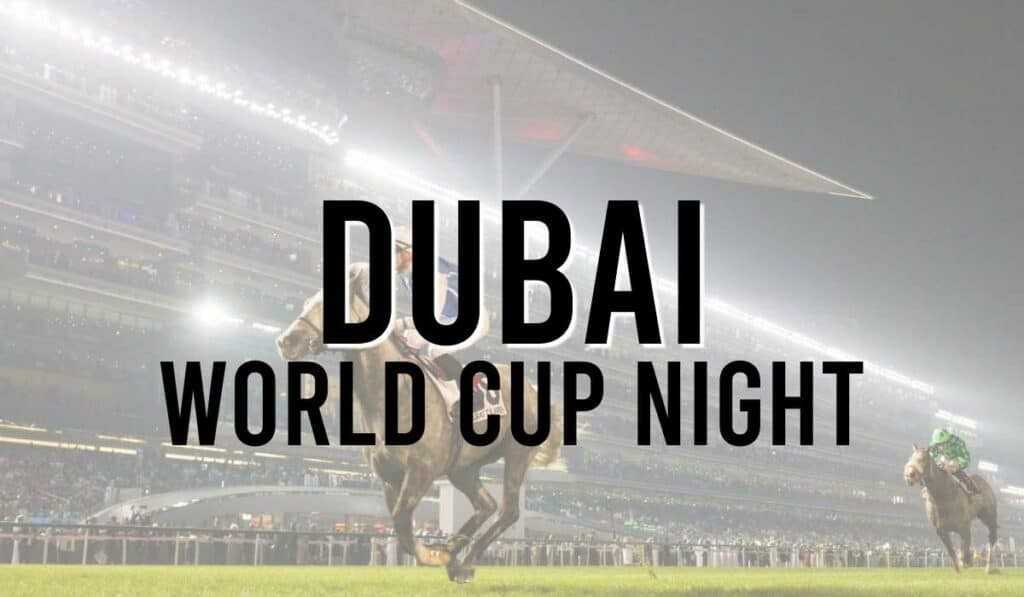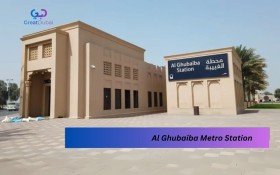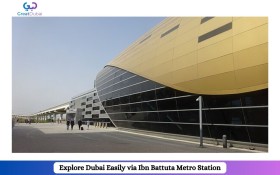How Important Is Dubai World Cup Night
Overview
The final in March is Dubai World Cup Night, a festival of races hosted at Meydan Racecourse in Dubai, United Arab Emirates. Similar to how the Breeder's Cup races are organized in the United States, the festival includes a number of races on dirt and turf over a range of distances. The estimated $30.5 million in total purse money makes it the wealthiest night in the entire sport. The Group I Dubai World Cup, the world's second-richest race with a $12 million payout, is the highlight of the festival. For horsemen and their rivals, the prize money would be reason enough to travel, but the Dubai World Cup Night has more to offer than simply money. The entire evening is a perfect example of what our sport is all about, both in terms of the people and the horses.
An Honoring Of the Horse
Traveling to the Middle East for Thoroughbreds and those who race them can be a form of pilgrimage or a means to reconnect with the sport's origins. Three significant foundation sires—the Byerly Turk, the Darley Arabian, and the Godolphin Arabian—are the ancestors of the contemporary Thoroughbred. These important sires were imported from the Middle East to add class and vigor to mares of European lineage, despite the fact that the breed was developed in Europe. There is no doubt that these horses have their ancestral homes in the desert sands, although some evidence suggests that the foundation sires may not have been pure-blood Arabians but only shared an ancestor with them.
International Rivalry
In 1996, when the Dubai World Cup was first held, the sport of international racing was just starting to take off. In October and November, the United States hosted the annual Breeder's Cup series, although top Thoroughbreds had little chances to face off against one another earlier in the racing season. Additionally, since all significant European races are held on grass surfaces, American horses, which typically compete on dirt, were unlikely to travel abroad to compete. The fact that supporters of this pastime frequently travel to Europe does not, however, imply that this race is not a major story in American horse racing news.
Dubai to take in one of the major events in the world
Under the direction of His Highness Sheikh Mohammed bin Rashid al Maktoum, the ruler of Dubai, thoroughbred racing was introduced to the city of Dubai in 1981. His goal was to increase the sport's notoriety both domestically and internationally. These aspirations came true in 1996 when Dubai hosted the inaugural Dubai World Cup, which was then worth $4 million USD. The Dubai World Cup was billed as a dirt race in an effort to draw top North American talent in addition to European. Many of the Group I races on the Dubai World Cup schedule are run on grass. This strategy worked well, as the first race had eleven talented competitors, including four from the Godolphin stable who competed in the UAE and Europe, two from Great Britain, and one each from Japan, Australia, and the United States.
This American trifecta was particularly thrilling since it featured Cigar, a six-year-old horse that was riding a winning streak of thirteen races and was named the 1995 Horse of the Year in the United States. A strong showing by Cigar would not only help American racing gain more recognition on a global scale but would also allow Sheikh Mohammed to take pride in hosting a truly international competition. The race itself was better than anticipated. After overcoming a minor injury and a long journey, Cigar displayed true guts by persevering to edge out fellow American rival Soul of the Matter by a hair's breadth. The cigar was unofficially named "Horse of the World," and the Dubai World Cup was added to the racing calendar as a regular event. The festival as a whole and the Dubai World Cup, which Country Grammer won in 2022, have expanded ever since. Horses from the United States, the United Arab Emirates, Great Britain, Ireland, France, Japan, Hong Kong, and South Africa have triumphed in the Group I races on Dubai World Cup Night.
The Very, Very Best
Five of the most prestigious races in the world—the Dubai World Cup, Dubai Turf, Sheema Classic, Golden Shaheen, and Al Quoz Sprint—are classified as Group I races (also known as Grade I in North America). The World Cup is undoubtedly the most renowned of the races, although the other four are equally distinguished within their respective categories. Around six furlongs is the distance between the Golden Shaheen and the Al Quoz Sprint, although the Golden Shaheen has a left-handed turn while the Al Quoz is run on a straight course. The Golden Shaheen for 2022 went to an eight-year-old Switzerland based in Dubai, while the Irish colt won the Al Quoz. Middle-distance grass events, the Dubai Turf, and the Sheema Classic are raced at 1 18 miles and 1 12 miles, respectively.
The former race has been won by Japan in recent years, despite the fact that the 2021 champion, the British-based Lord North, appeared ready to retain his title. In the end, though, he was forced to share the victory with the Japanese horse Panthalassa when they tied for first place. Nearly as dramatic was the Sheema Classic, where the Japanese horse Shahryar just prevailed over the fast-closing Yibir, who was attempting to become the first Breeders' Cup Turf victor to also win the Sheema Classic.
Conclusion
It is difficult to imagine losing when the best horse in the world is strutting his thing in the Dubai World Cup. He is drawn in stall 1 and promises to use his enormous speed and make all against the rail as long as he jumps quickly out of the gates. For more info about How Important Dubai World Cup Night stay connected with Great Dubai.



![Top Reasons To Have SEO Plan For Every Dubai Business [2025 Update]](/thumnails/blog/2024/11/1732278589.jpg)















